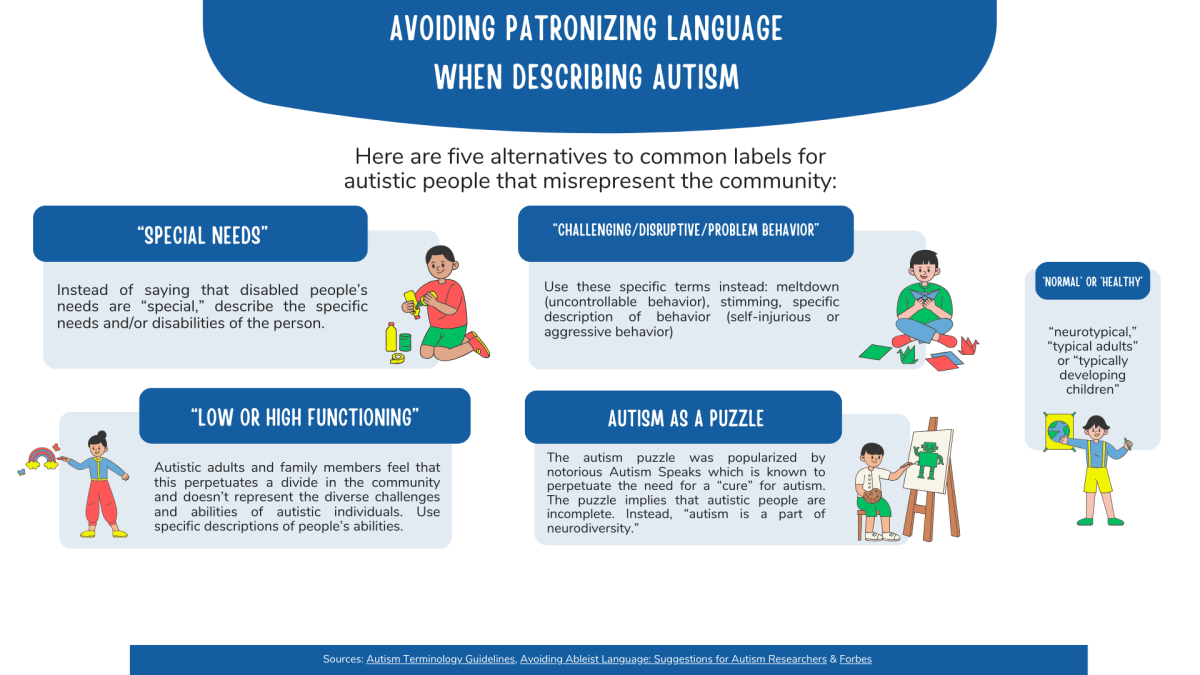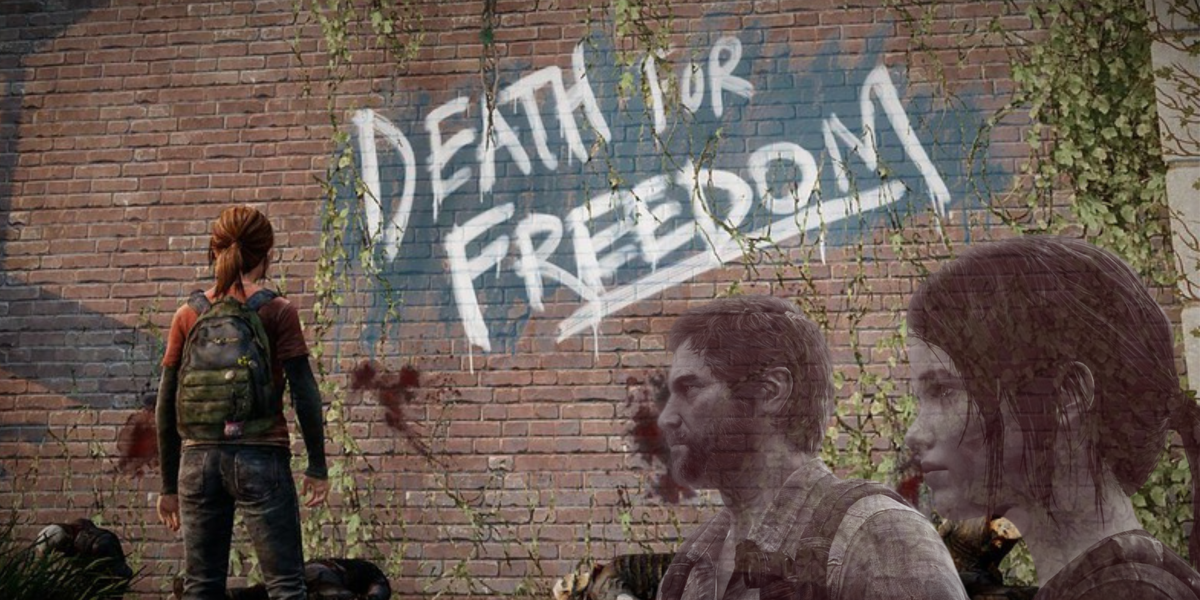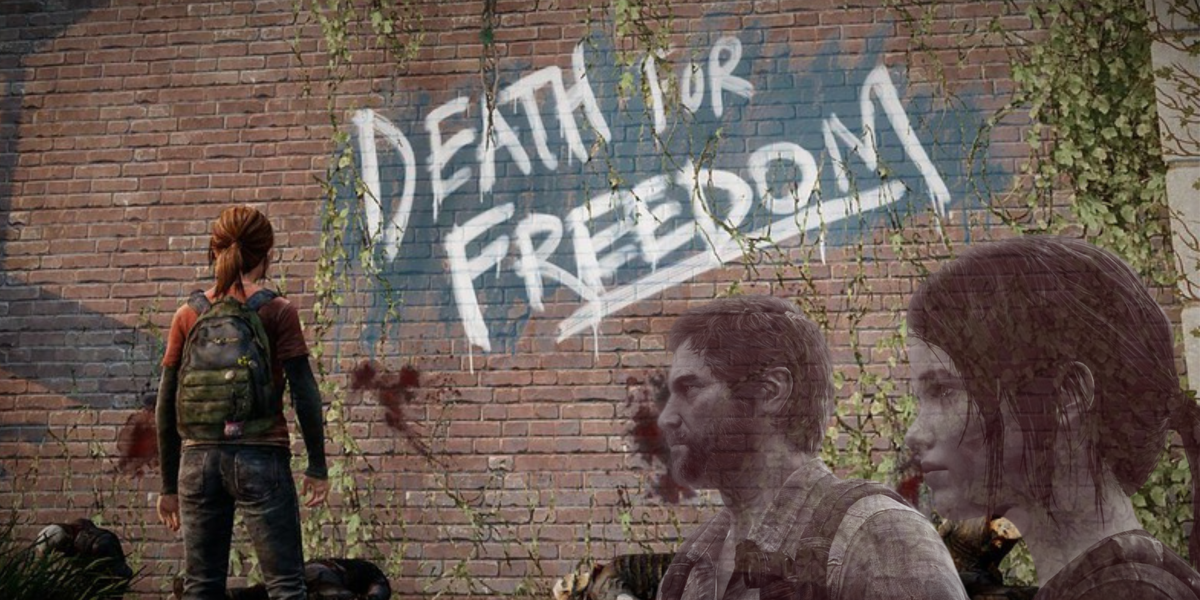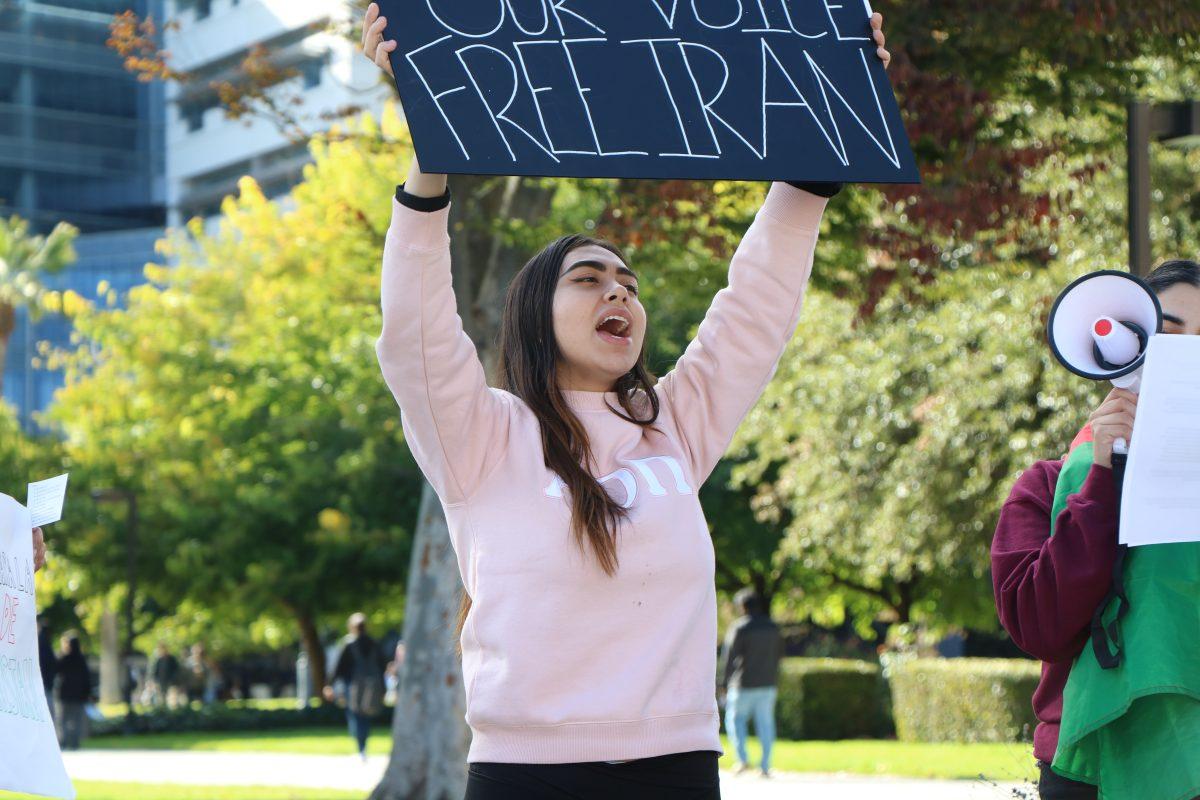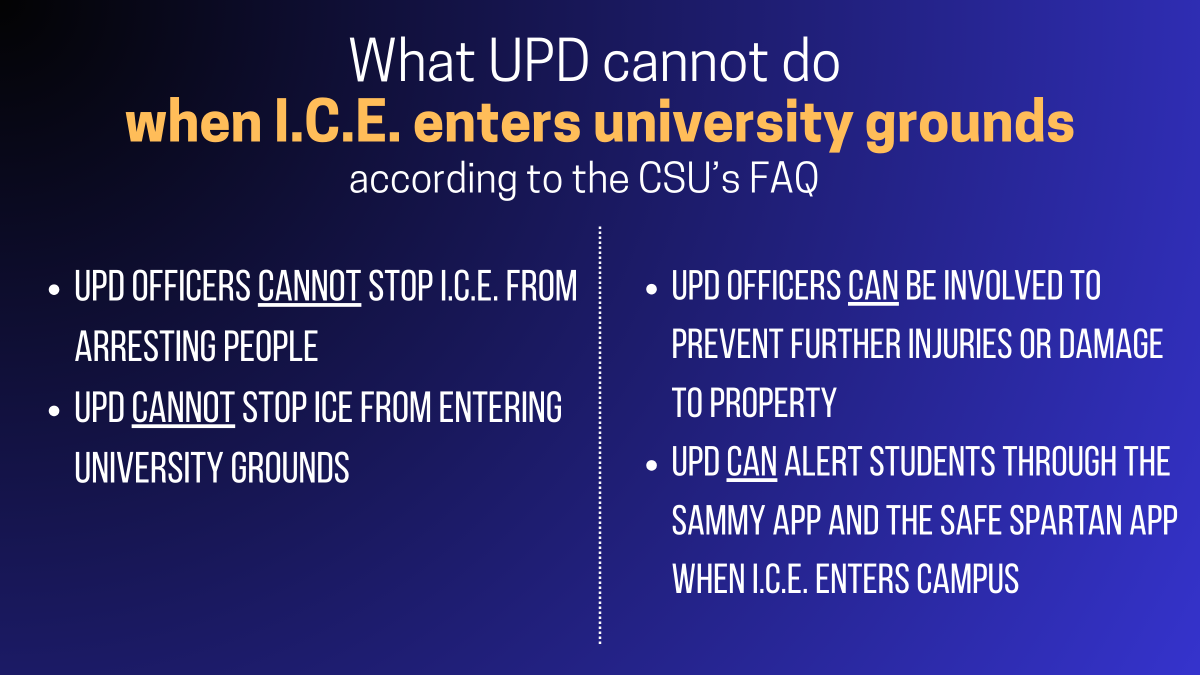Editor’s notes: Staff writer Myenn Rahnoma is president of the Afghan Student Association. This story was updated on Nov. 15 because Wahhab Salemi was misquoted. The Spartan Daily regrets this error.
On Tuesday afternoon, the Afghan Student Association and the Persian Student Association held a rally at San Jose State to advocate for freedom in Afghanistan and Iran.
The two student groups and other members of the SJSU community gathered in front of the Olympic Black Power Statue, holding Afghan and Iranian flags and colored posters, while listening to a series of speakers who highlighted issues and challenges that Afghan and Iranian people are facing.
After the speakers, the crowd began marching on Seventh Street,intoning the chorus for freedom.
Saugher Nojan, SJSU sociology and Asian American studies assistant professor, focused the attention on the West’s distorted vision and stereotypes about Islam.
“The Western’s representations of the East are inferior and need to be seen to justify Western imperialism and superiority through domination, racism and violence against those deemed other,” Nojan said.
She said that style of domination produced an imagined geography that silences and produces an invisible and passive othering through the proliferation of stereotypes.
“We need to unlearn what the West has taught us about Islam and women’s rights,” Nojan said. “Islam does not oppress women. Governments do.”
The current Iran and Afghanistan governments suppress women figures denying basic rights and freedom and barring them from public life.
The most recent event that took place in Iran sparked protests around the world.
Zhina (Mahsa) Amini, a 22-year-old Iranian woman, was arrested for allegedly violating Iran’s mandatory hijab law, and died after a three-day coma, according to a Sept. 16 New York Times article.
Nojan remarked on the Afghan Adjustment Act, highlighting the importance of continuing helping and supporting Afghan communities.
After the U.S. troops withdrawal from Afghanistan territory in August 2021, the U.S. allowed Afghan refugees into the country under a short-term humanitarian parole status allowing them to quickly enter the U.S., according to a Sept. 9 Al Jazeera article.
The situation led to the development of the Afghan Adjustment Act, a bipartisan bill allowing Afghan refugees who are currently in a short-term humanitarian parole status to apply for permanent legal status in the U.S., according to a Sept. 22 New York Times article.
“As Afghans continue to see violence in our homeland and in the United States, it is vital that we support these communities through the Afghan Adjustment Act,” Nojan said. “Aside from oppression, we are not just a community of victims, we are also experiencing joy and have a beautiful culture.”
Although members of the student associations have been actively involved in advocating for the freedom of Afghanistan and Iran, they suffer because of the current situation in their home countries.
Wahhab Salemi, Afghan Student Association outreach coordinator, said he feels powerless because of what people in Afghanistan are experiencing.
“People in Afghanistan right now do not have any means of escaping their reality,” Salemi said. “Those people are struggling and they have no one and the world has seemed to forget about them.”
He said there are millions of people in Afghanistan and Iran who are in need of support, resources and humanitarian aid.
“The moment we forget about them, we leave them all in the dust,” Salemi said.
Persia Mozaffari, the Persian Student Association vice president of recruitment, said she had mixed emotions because of the rally.
“I am not happy that we have to protest and gain people’s attention,” Mozaffari said. “ People aren’t aware of what is happening in the world because they are so focused on their own lives.”
She said at the same time, she feels proud about the work the student organizations are doing to advocate for Afghanistan and Iran.
“That is why we have to come out here to show these people what we’re doing, why we need their support, because at the end of the day, we cannot just have the people of our own country showing our support,” Mozaffari said. “We need everyone else and we need everyone’s alliances.”
One of the topics that the speakers covered concerned how the media and news outlets consider Afghanistan and Iran.
Salemi said it is sad that the news is often about horrible things that are going on in his country.
“The moment when the West does not have any type of interest in that, when that interest has gone from our country, it’s also gone from the headlines,” Salemi said.
Mozaffari said she is not surprised about the current poor news coverage on Afghanistan and Iran.
“I know that the government wants nothing more from Iran than their oil and just to be on good terms with them, but they don’t really care what’s happening,” Mozaffari said. “They don’t see us as actual people because Americans are notorious for their greed.”








